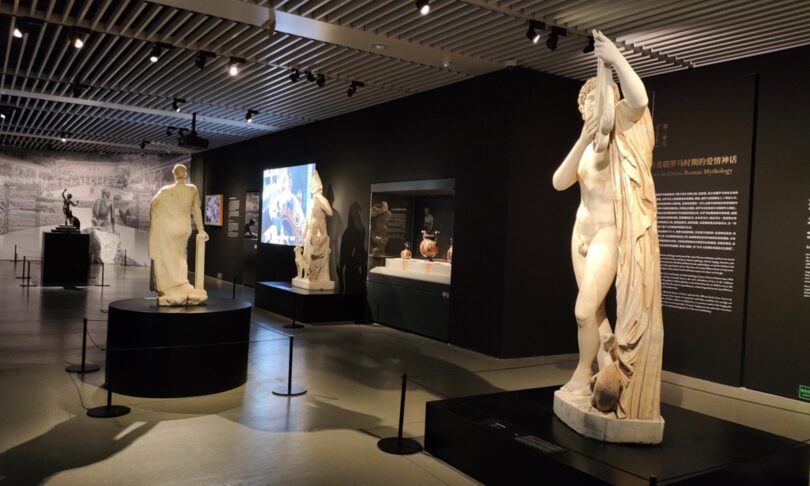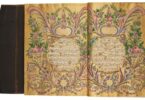BEIJING : The opening ceremony for a new exhibition called Love Luxury Beauty in Classic Antique Masterpieces was held at the National Library of China on Monday as a promotion for cultural exchanges between Italy and China.
Massimo Ambrosetti, Italian Ambassador to China, said at the opening ceremony that thanks to the China-Italy year of culture and tourism, the two countries have carried out a lot of cultural exchange events and it gives people an opportunity to rethink the importance of art and culture.
The exhibition has a theme of “Myth of Pompeii: Treasures from the National Archaeological Museum of Naples in Italy,” and it showcases 127 precious artifacts from the National Archaeological Museum of Naples, one of the oldest and most influential archaeological museums in the world, which houses the most important artifacts unearthed from Pompeii, according to a press release from the National Library of China on Monday.
It includes sculptures, frescoes, ceramics, bronzes and glassware, and one of the highlighted exhibits is the sculpture of Aphrodite Rising from the Sea, depicting the radiant beauty of the Greek goddess of love and beauty.
The exhibition is divided into five sections, focusing on love, luxury, and beauty during the ancient Greek and Roman period. It recreates the cityscape and daily life of Pompeii before it was buried by volcanic ash, allowing visitors to explore the ancient Roman civilization.
Federico Antonelli, cultural counselor of the Italian Embassy in China, told the Global Times that cultural exchanges between China and Italy have been frequent in recent years, with various Italian-themed events held in multiple cities across China. He mentioned that when curating exhibitions, they consider the audience and the level of the exhibited works. If it’s for Chinese tourists, the exhibition might be set up in a shopping mall, while for scholars, it would be held on a university campus. If it involves important artifacts, major museums will be considered as exhibition venues.
He said culture and art are a universal language, and he hopes that Chinese audiences can deepen their understanding of Italian cultural history through these exhibitions.
Dong Qiang, dean of the Yenching Academy at Peking University who visited the exhibition, told the Global Times that as an experienced exhibition-goer, he found the exhibition to be exquisite in terms of image interpretation and display of artifacts. It is rare to see such precious Italian relics in China, Dong noted, and Pompeii, with its millennia-old history, has increased Chinese tourists’ awareness of this period of ancient history.
Courtesy: globaltimes







